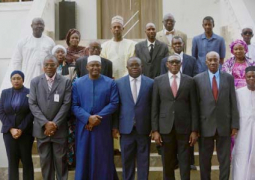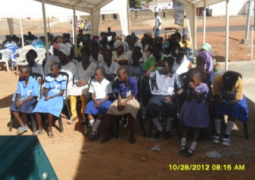African scientists on climate change at University of Rhode Island (URI) Coastal Resources Centre.
Three young scientists from
The Gambian scientist, Famara Drammeh, is working with the National Environment Agency as a programme officer for Coastal and Marine Zone Units. The other participating African scientists are Sinibaldo Canhanga, an oceanographer at the National Institute for Hydrology and Navigation in
The scientists will meet with geologists, engineers, oceanographers and mapping experts at URI and elsewhere in
A news release from Virginia Lee, senior coastal manager at the Coastal Resources Centre, who is coordinating the visit by the African scientists, said: "We'll be using
Ms Lee added that both in the
She said that typical practices in
She said that in addition to learning how to manage relevant science to clarify issues of vulnerability, the visiting scientists will learn the basics of how to set up a permitting process, how to measure erosion, how to mitigate the vulnerability of infrastructure, and how to coordinate the work of government agencies and non-governmental organizations.
The lessons will feature local examples of effective plans and regulations, including those used in
The visiting scientists are among 12 selected for a fellowship by the Intergovernmental Oceanographic Commission of UNESCO and coordinated by the U.S. National Oceanic and Atmospheric Administration, the U.S. Department of State, and the Swedish International Development Cooperation Agency.
The fellowship programme aims to contribute to the career paths of young African scientists and develop their leadership skills in advocating science as an important contributor to good governance.
The fellows attended a workshop in
According to Virginia Lee, the URI Coastal Resources Centre is dedicated to advancing coastal management worldwide. In addition to assisting in the development and implementation of coastal management programmes in





